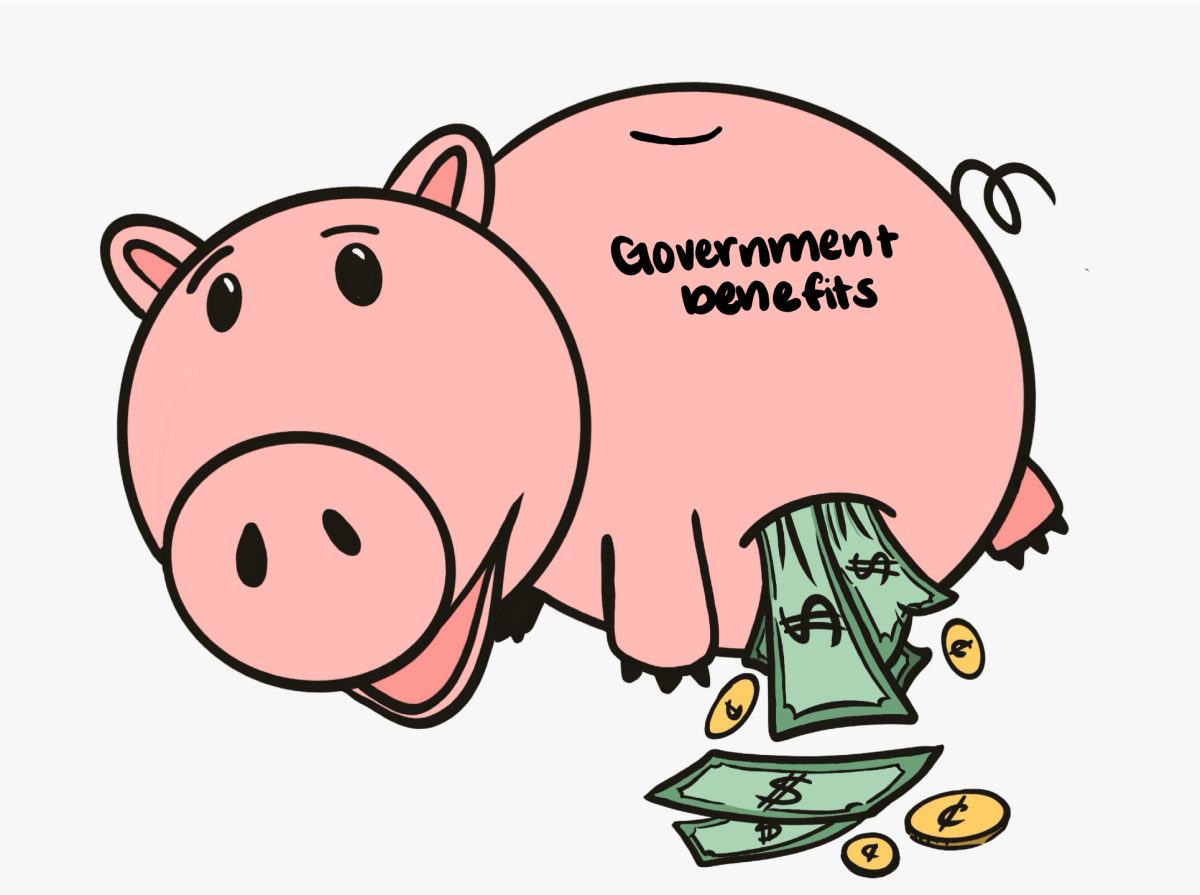According to Medicare.gov and USDA.gov, over 112.5 million people depend on Medicare and the Supplemental Nutrition Assistance Program (SNAP) benefits to live, but the One Big Beautiful Bill (OBBB) will make access to these essential government programs more difficult in the coming years. The bill was signed into law in July of 2025, and experts won’t be able analyze the impacts of the bill until after the 2026 tax season. The OBBB, approved on July 4, 2025, was proposed by Jodey Arrington, a US Representative from Texas, planning to extend the 2017 tax cuts, as well as implement more spending cuts to various departments, including cuts to the Clean Energy Department and crucial government agencies. Per the Wall Street Journal, the bill has already affected many government programs by changing eligibility criteria to receive the benefits of the different programs, and changing different tax policies, largely affecting the most vulnerable communities and individuals.
The OBBB extends tax cuts indefinitely that were put into place by President Trump in 2017. According to a recent BBC article, tax cuts are afforded by the government by cutting funding to government programs or having mass layoffs of federal employees.
The OBBB will affect those with more and less wealth. Tax cuts will likely benefit the upper class through the lowering of income taxes and a deduction in State and Local Taxes (SALT). The OBBB tightens restrictions on federal assistance programs, including Medicare, a public health insurance program for low-income individuals, and SNAP, which provides financial food aid to low-income families. One crucial change to the requirements for both Medicare and SNAP is that individuals, between the ages of 19 to 6, must work at least 80 hours per month; there was no work requirement at all. According to the Washington Post, many critics see that the bill will benefit the top 20% of Americans, while the bottom 20% will feel more negative effects of the new policies.
As government benefits receive less funding from the OBBB, those who depend on assistance will be unable to collect what they need. Not only will this put many in difficult situations, but there will also be economic effects from the bill that will affect many other consumers. The OBBB will have an impact on the economy, and the collective health of America. Mr. Lance Suzuki, an AP Economics teacher at ‘Iolani, said, “You’re going to put those families in not only a worse financial position, but their health outcome won’t be as good as it could be.
So if you have a population that’s not healthy, then they’re not productive. They can’t earn incomes…On a macro level, that also has an effect because those families now can’t be as productive and contributive to economic growth as they could.”
Those who depend on government programs are often those who help manufacture and produce goods. Without their crucial labor in an already competitive labor market, there will be a higher demand for goods and services. Many Americans may not be able to fulfill the new requirements and lose their Medicare coverage. A previous AP US Government teacher Mr. John Bickel said, “There are work requirements for it, which a lot of people on Medicare are not going to be able to meet.” Medicare cuts will affect those not covered by health insurance, forcing many to pay out of pocket for routine appointments and procedures. Health insurance and coverage have been a widely disputed issue in American politics since the mid-20th century, as many of America’s counterparts have free healthcare for all citizens, so plans to shrink Medicare coverage will have implications, but are not a new idea.
However, there is wide support for the bill especially from specific industries. The bill approved a 12.5 billion fund for air traffic control infrastructure and facilities across the United States. The new policy also reintroduces the tax credit for new aircraft immediately after service; meaning aviation companies will receive tax credits for new aircrafts, encouraging development of aircrafts. This policy would promote the aviation industry, and their ability to roll out new aircrafts.
The bill introduces a new tax credit for Scholarship Granting Organizations (SGOs). A tax credit is a deduction in taxes owed to the government. The organizations that are eligible for the credit provide tuition assistance for private or religious schools. These organizations will receive a tax credit for every dollar given in financial aid up to $1,700. The bill will help lower income families be able to benefit from more tuition assistance. Melanie Z. ‘27 said, “I see both sides, this bill helps families save money on tuition.” The bill encourages organizations to provide scholarships for a tax credit reward. However, the results of this initiative won’t be able to be analyzed until after the 2026 tax season.
The people of the United States are split on whether or not they support this bill. A major factor people account for is whether or not they are negatively impacted by the bill. However, the ability to analyze impact accurately won’t be available until the summer of 2026.






